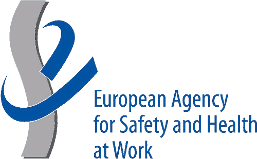

The specialised literature has been increasingly dealing with the implications of psychosocial risk (PSR) factors and corresponding mental health outcomes in employment. Previous research has often focused either on holistic working population or sectoral overviews of selected industries or occupations. However, there is a relative paucity of studies investigating specifically the most vulnerable social groups particularly exposed to PSRs, such as low-skilled or low-paid workers.
Notwithstanding, preliminary evidence seems to indicate that this category may well be vulnerable to higher exposure. Therefore, to fill this knowledge gap, it is the main objective of this scoping review to provide an exploratory literature overview of the associations between PSR exposure and mental health outcomes of European workers with low socioeconomic status (hereafter referred to as LSES workers).




In the context of this study, external trends with the capacity to change the structure of work or even alter job quality and stability have also been taken into account. Specific effects associated with the recent experience of the pandemic and the technological developments induced by digitalisation are acknowledged as strong external trends with the capacity to affect working conditions and the occurrence of PSRs for LSES workers.
A further challenge of the study was also implicit in the operationalisation of the LSES category of workers for applied research, since it lacks a true consensual definition among scholars. Accordingly, this review required the development of a broad operational definition of LSES workers that includes: a. results directly associated with socioeconomic and sociodemographic status of workers; b. results associated with industry sectors and occupations potentially holding large shares of LSES workers; and c. results associated with quality of employment when these could help identify LSES workers. The results of the literature review are therefore presented through these categories.
The set of results is then accompanied by a selection of 10 good practices detailing successful interventions in organisations that improved the management of PSRs in the workplace for potentially LSES employees, giving a broad coverage considering a balance among geographical and sectoral balance, organisation’s size, typologies of stakeholders involved, typology of LSES targeted workers and typology of interventions.